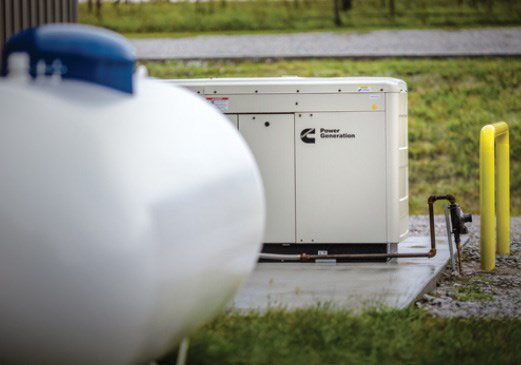Hurricane Propane Preparation Tips
Each year, hurricanes endanger the lives of thousands of people and cause extreme property damage. There are certain things you need to remember when a severe storm hits. To keep you and your family safe during a hurricane or tropical storm, we recommend following these simple steps.
- In flood zones areas, make sure your large above-ground and underground propane tanks are anchored securely to avoid potentially dangerous situations. The National Fire Protection Association (NFPA) requires that you do this. If you have questions, please reach out to your local Ferrellgas office.
- Have an adequate supply of propane in your tank. During and after a major hurricane, propane and other types of fuel may not be readily available and roads leading to your home or farm might not be accessible for delivery. We recommend contacting your local Ferrellgas office to schedule a fill when your tank reaches 30 percent.
- If a hurricane threatens your safety, you should shut off the gas. Turn off the main gas supply valve on your propane tank if it is safe to do so. To close the valve, turn it to the right (clockwise). Also, it’s a good idea to turn off the gas supply valves located near individual indoor appliances.
- Listen to your local authorities, or television and radio stations, to determine if you need to evacuate your home or farm. If you do evacuate, use extreme caution when returning to your property. If you have doubts about your safety, leave the area immediately and have your property inspected by a qualified building inspector or structural engineer before re-entering.
- After the hurricane danger passes and it is safe to do so, check the entire area for downed power lines, damaged gas lines, or damage to your propane tank. High winds and floods can move, shift, or damage gas lines and tanks. If it is dark, use flashlights, not candles. Immediately call your local utility company or Ferrellgas office if any of these hazards exist. Do not attempt repairs yourself. If you find a propane tank on your property that is not yours, or if your propane tank has become dislodged or is missing, contact your propane retailer or your local fire department immediately.

When the storm passes, consider investing in a propane-powered generator. Power outages from severe weather can be expensive, inconvenient, and even dangerous for you and your family and a generator can help prevent that.
Instead of dashing around in search of candles and flashlights when a storm rolls in, you can rest assured knowing your family is going to be safe, secure, and comfortable. Propane standby generators come in a variety of sizes, making it easy for you to find one that meets your home’s needs. They start automatically when the power goes off and even run periodical diagnostics so that there are no surprises when you need it most. And, unlike gasoline and diesel, propane doesn’t degrade over time, which makes it the perfect standby fuel source when it really counts.
With a propane-powered generator, you’ll be able to go about your regular household routine when a storm knocks out the electricity.
Information in this blog provided by the Propane Education & Research Council.
To learn more about the benefits of propane standby generators, visit our Generators page.
CATEGORIES
Archives
- Summer 2025
- Spring 2025
- Winter 2024
- Fall 2024
- Summer 2024
- Spring 2024
- Winter 2023
- Fall 2023
- Summer 2023
- Spring 2023
- Winter 2022
- Fall 2022
- Summer 2022
- Spring 2022
- Winter 2021
- Fall 2021
- Summer 2021
- Spring 2021
- Winter 2020
- Fall 2020
- Summer 2020
- Spring 2020
- Winter 2019
- Fall 2019
- Summer 2019
- Spring 2019
- Winter 2018
- Fall 2018
- Summer 2018
- Spring 2018
- Winter 2017
